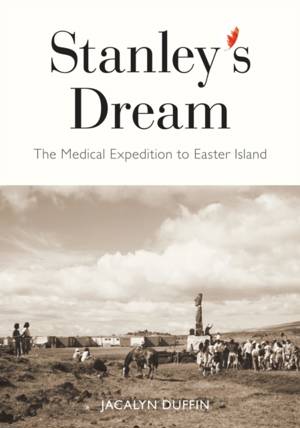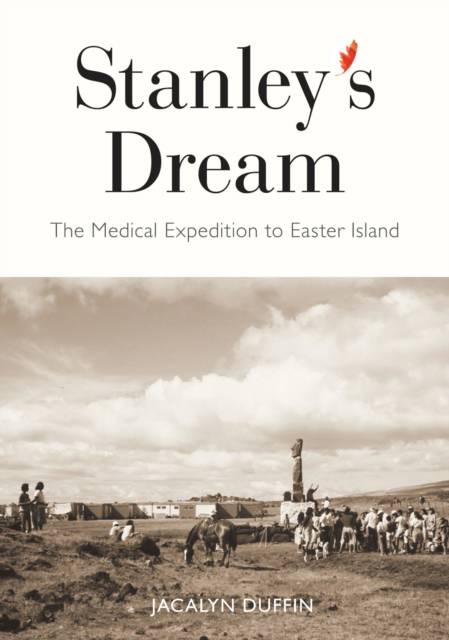
- Retrait gratuit dans votre magasin Club
- 7.000.000 titres dans notre catalogue
- Payer en toute sécurité
- Toujours un magasin près de chez vous
- Retrait gratuit dans votre magasin Club
- 7.000.0000 titres dans notre catalogue
- Payer en toute sécurité
- Toujours un magasin près de chez vous
65,45 €
+ 130 points
Description
In 1964-65, an international team of thirty-eight scientists and assistants, led by Montreal physician Stanley Skoryna, sailed to the mysterious Rapa Nui (Easter Island) to conduct an unprecedented survey of its biosphere. Born of Cold War concerns about pollution, overpopulation, and conflict, and initially conceived as the first of two trips, the project was designed to document the island's status before a proposed airport would link the one thousand people living in humanity's remotest community to the rest of the world - its germs, genes, culture, and economy. Based on archival papers, diaries, photographs, and interviews with nearly twenty members of the original team, Stanley's Dream sets the expedition in its global context within the early days of ecological research and the understudied International Biological Program. Jacalyn Duffin traces the origins, the voyage, the often-complicated life within the constructed camp, the scientific preoccupations, the role of women, the resultant reports, films, and publications, and the previously unrecognized accomplishments of the project, including a goodwill tour of South America, the delivery of vaccines, and the discovery of a wonder drug. For Rapa Nui, the expedition coincided with its rebellion against the colonizing Chilean military, resulting in its first democratic election. For Canada, it reflected national optimism as the country prepared for its centennial and adopted its own flag. Ending with Duffin's own journey to the island to uncover the legacy of the study and the impact of the airport, and to elicit local memories, Stanley's Dream is an entertaining and poignant account of a long-forgotten but important Canadian-led international expedition.
Spécifications
Parties prenantes
- Auteur(s) :
- Editeur:
Contenu
- Nombre de pages :
- 576
- Langue:
- Anglais
- Collection :
- Tome:
- n° 247
Caractéristiques
- EAN:
- 9780773557109
- Date de parution :
- 30-08-19
- Format:
- Livre relié
- Format numérique:
- Genaaid
- Dimensions :
- 178 mm x 236 mm
- Poids :
- 1179 g

Les avis
Nous publions uniquement les avis qui respectent les conditions requises. Consultez nos conditions pour les avis.






